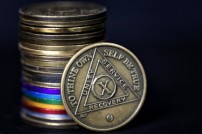As jury selection for the long-anticipated trial of the Boston Marathon bomber is underway, there is much speculation about how brain science will be used by the defense team of Dzokhar Tsarnaev, who was 19 years old when he committed the alleged bombing. CLBB Co-Director Judith Edersheim, a forensic psychiatrist and Assistant Professor of Psychiatry at Harvard Medical School, discussed the use of brain science in the Tsarnaev trial with WBUR’s Lisa Mullins and adolescence expert and Professor of Psychology at Temple University Laurence Steinberg on Radio Boston on Monday, January 12.
Listen to the discussion below, or on Radio Boston.
Also, read Dr. Edersheim’s commentary on the Tsarnaev trial on WBUR’s CommonHealth.




